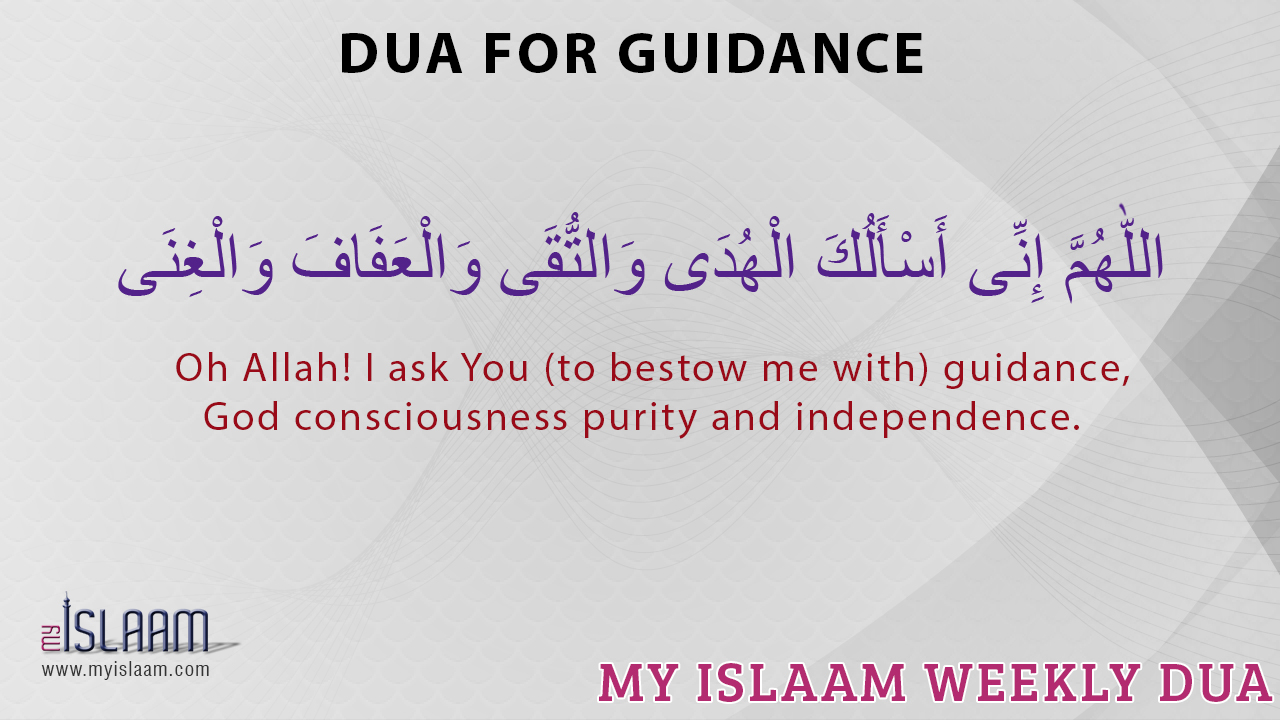Introduction
In this essay the question, “who speaks for Muslims in Britain?” will be addressed. The question will be addressed from three aspects. Firstly, there will be mention of all those that could be potential figures to the question in discussion. Secondly, there will be elaboration on who speaks for Muslims in Britain? Thirdly, there will be allusion of those that should arguably have the responsibility to speak for Muslims. Lastly, as a conclusion a brief summary will be given of the essay.
Potential candidates
Every person that comes under the ambit of being a Muslim and lives in Britain or who spent a considerate amount of time in Britain, irrespective of who the person may be and where the person may come from, can be a potential candidate for the question in discussion. Consequently, a Muslim layman as well as a religious scholar can speak for Muslims in Britain. A Muslim male, as well as a Muslim female can speak for Muslims in Britain. On the other hand, there are non-Muslims who can also be potential candidates, speaking on behalf of Muslims in Britain, for example an editor of a newspaper or a proprietor or a journalist working in an another form of media industry could lead some of the key issues of Muslim concerns and speak on behalf of them. It is clear that numerous people have the potential of speaking for Muslims in Britain.
What aspect?
However, the discussion does not end here. When one is asked: “who speaks for Muslims in Britain?” naturally the question arises whether one is asking about Muslim religious leadership or some other kind of leadership? It could be said that Muslim religious leadership would probably not be intended as is clear from the following, a paragraph taken from a review on a programme broadcasted by BBC, news night, themed “who speaks from British Muslims” by Sarah AB (2014) (which will be understood more clearly further on):
The author of the debate title perhaps mistakenly thought that his question was synonymous with ‘who speaks for British Islam?’ Islam is a religion which sets out both specific and broad principles that Muslims are asked to follow.
This quote suggests that there is a difference between leading the Muslim community and representing Islam. If Muslim religious leadership was intended then the question would have been, “who speaks for Islam in Britain?” or “who speaks for British Islam?” and this is not the case therefore this meaning could be dispelled. However, the question still arises that what specific aspect is meant from the title, “who speaks for Muslims in Britain?” Due to the title being general, it will be assumed that all aspects are included except the one aspect dismissed above.
Other questions also stem from the question that is subject to discussion. For example; who should be speaking for the Muslims in Britain? Who will be deemed the most authentic sources as spokesmen for Muslims in Britain? These questions will briefly be answered further in to the essay.
Media as a spokesperson for Muslims
Going back to the question, “who speaks for Muslims in Britain?” It could be argued that mainly the media speaks for Muslims in Britain, whether that is broadcast media such as television and radio or whether that is print media such as newspaper and magazines, like mentioned in the article from Issue 7 of “On Religion” – a quarterly magazine that provides informed commentary and coverage of religion in the UK: “In reality, it doesn’t matter who is doing the speaking, but who is given the microphone to be heard”. (Ahmed 2014)
It is clear from the above that the media normally puts those types of people in the spotlight, regarding whom it is known that they are contentious or they will be such figures that will portray the message the way they want it to be portrayed. This will be proven below.
For example, the programme broadcasted by BBC, news night, themed “who speaks for British Muslims”. Sameer Mallick (2014) mentions that the BBC News night’s section regarding who represents Muslims in Britain was totally chaotic and an absolute mockery. Majid Nawaz was called to produce a six minute film conversing the issues effecting the representation of Muslims in Britain. This was followed by a debate, where Mo Ansar and Mehdi Hasan were paired up against Maajid Nawaz.
It is attention-grabbing how the BBC chose Nawaz out of all people to make such a documentary because he is a controversial figure whose reputation is well known for causing discordance within the British Muslims. If the BBC seriously wanted to initiate such a dialogue, they could have at least appointed the documentary to a figure that is recognised amongst the British Muslims.
Referring to the same programme broadcasted by BBC, Sarah AB (2014) mentions that rather than speaking about the important question of discussion, the interview ascended into a commotion contest among three British Muslims regarding a cartoon being offensive or not. From amongst the debaters there would have been two British Muslim men and a Muslim woman; however the programme producer strangely felt that an all-male panel would mean a ‘wider range of views’. Consequently after much hysteria and nine minutes of raging, the audience were still left unanswered regarding who actually speaks for British Muslims.
It is clear from the above example that BBC (British Broadcasting Corporation), a UK based international public service, one of the world’s oldest national broadcasting organisation a strong media tool used by many, chose to depict an answer to the question ,“Who speaks for British Muslims” by using a controversial figure and putting him in the spotlight. Furthermore, BBC could have used some accepted figure amongst the Muslims but chose not to. This is a clear demonstration of the media speaking for Muslims in Britain.
People know that the media not only transfers information and ideas but also shapes opinions. This becomes even clearer through examples as the one mentioned above. (Ameli et al.2007:8)
Further to the above, numerous events over the past decade or so have significantly, without doubt moulded how the common public recognises the Muslims. There have been the sequence of riots and conflicts in the North; the repercussions of September 11th 2001 and even the horrific July 7th 2005 London bombings. The Media has ceased to be a spectator simply reporting events; rather it has become a very active player in the subtleties of the public, having a huge impact on individuals. No one really holds them accountable for generating negativity or for strengthening negative stereotypes which has led and is leading to Islamophobia .This immensely influences what society thinks about Muslims. (Ali, n.d :23)
With few exceptions, when the Western media talks about Islam and Muslim culture, discussion tends to focus on religious extremism and global terrorism. (Esposito et al. 2007:1)
Muslims in Britain have specifically expressed their concerns regarding the way the media portrays Islam. Apart from the impreciseness and prevalent negativity in the media, Muslims feel that people’s views of their faith are critically affected by such representation. (Ameli et al. 2007:8)
Who should have the responsibility to speak for Muslims in Britain?
Now coming to the question, “who should have the responsibility to speak for Muslims?” the article from Issue 7 of “On Religion” suggests that there are several organisations that have both the legitimacy and expertise to represent British Muslims. From amongst these organisations the main one included the Muslim Council of Britain (Ahmed 2014). Now the question arises, what is the Muslim council of Britain?
The Muslim Council of Britain is an independent, non-sectarian, national, broad-based representative Muslim umbrella body for Muslims in Britain, who have over five hundred affiliated organisations be them national, regional or even local, such as, mosques, charities and schools. This body was established to promote discussion, teamwork and harmonisation on Muslim affairs in the United Kingdom. It is working for the common good of society as a whole and does recognise all types of Muslim work in the community. It takes in to consideration the diverse social and cultural backgrounds of the community. The Muslim Council of Britain encourages Muslim individuals and Muslim organisations to play a full and participating role in public life. (Muslim Council of Britain 2014)
The Muslim Council of Britain was established in 1997 to act as the united and coherent voice of Muslims to the Government. (Mirza et al 2007:79)
The MCB was deemed to be a uniting organisation due to it being inaugurated in 1997 by over 250 organisations that were from all parts of Britain. It has been successful in instituting itself as the key channel through which Muslim views have been presented to the Government and media. (Mayor of London 2007:73,74)
There has been much discussion regarding the value of ‘community leaders’ and their capability to accurately represent the views of their communities. This is because the Muslim population contains considerable division and disagreement. (Mirza et al 2007:79)
It is true that it may not be possible for a single organisation to be ‘the voice’ of British Muslims, because there are so many different groups of Muslims, hence the Muslims are effectively too diverse to be condensed to a single monolithic viewpoint. However, organisations such as the Muslim Council of Britain can be a key path through which authentic Muslim voices are and can be heard. (Ahmed 2014)
The above is further substantiated by one of the core principles of the organisation (Muslim Council of Britain 2014):
The MCB is an inclusive, body with all schools of thoughts and traditions represented amongst its affiliates. Its officials, volunteers and members come from all social and cultural backgrounds, schools of thought and political views.
It should be kept in mind that organisations such as MCB do not have any religious authority as such. Hence, to complicate them as an Islamic version of the Church of England would be erroneous because Islam functions more like a non-conformist chapel. Furthermore, each Islamic organisation is independent with their respective Imams having their own range of influence. Nonetheless, some figures have a greater influence than others. Amid individuals and organisations there are those who can speak for British Muslims. However, it is scarce for their voices to be heard. This is merely because the focus in mainstream media and popular broadcasting is concentrated elsewhere, just like demonstrated in the example of the programme broadcasted by BBC, news night, themed “who speaks for British Muslims”, where Certain voices are given disproportionate attention by the media.(Ahmed 2014)
Due to the diversity of Muslims groups a lot of organisations share this feeling that existing Muslim representative organisations are not successful in adequately representing the mainstream views of Muslims. In a worst case scenario, they even misrepresent their views. (Mirza et al 2007:79)
For example, MCB were under scrutiny when they never attended the annual Holocaust Memorial Day although the MCB strongly denounce the holocaust. They were also subject to a Panorama documentary in 2005 which portrayed that the organisation was subjugated by ideologies with extremist view (Mirza et al 2007: 79,80). This all stemmed from when bombing started on Afghanistan and a lot of Muslims condemned this. MCB also declared its public opposition to such an action, upon which the Prime Minister was disappointed. At the end of that year all Muslim leaders including MCB were accused of intensifying religious separatism and laying foundations for increasing radicalisation amongst the youth (Mayor of London 2007:74,75).The BBC’s Panorama programme never left any stone unturned in vilifying MCB. The programme emphasised on the point that Muslim population of Britain is not homogenous and hence it’s near impossible to have a united body or organisation for Muslims. Secondly, the programme stated that MCB does not have the ability and cannot control the actions of its affiliates. Lastly, the programme declared that MCB has its critics and adversaries within the Muslims of Britain.
The above striking points in relation to the Panorama programme’s stance, only led the Muslims to more confusion. This once again proved that it is actually the media who speaks for Muslims in Britain.
Conclusion
It can arguably be said that the media speaks for Muslims in Britain, whether that be broadcast media such as television and radio or whether that be print media such as newspapers and the problem therefore is of those people who are in control of the microphone and who is heard.
Given the multiplicity of religious perspectives and political influences in British Muslim communities, it will, without doubt be hard to have a unified, united opinion from Muslims in Britain. Especially after being represented and misrepresented, vilified and criticised, first and fore mostly by the media and even by the various community leaders, extremists etc. A lot of Muslims have become pessimistic regarding whether anyone cares about what they think. It is true that this cannot be fixed over night by merely having discussions and debating. Rather, there needs to be a thoughtful effort in re-engaging with Muslims through the prism of their identity as citizens. This also means engaging with other minority groups. A vital aspect of this will be the freedom to express challenging views. (Mirza et al 2007: 79,80)
________________________________________________
Bibliography
Ali, A (n.d), Muslim youth in Britain: A ticking time bomb? British Muslim Research Centre.
Ameli, S. R., Marandi, S. M., Ahmed,S., Kara,S., Merali,S.(2007). The British media and Muslim representation: the ideology of representation. Islamic human rights commission.
Esposito, J.L., Mogahed, D., (2007). Who speaks for Islam? Gallup press.
Mirza, M., Senthilkumaran, A., and Ja’far, Z., (2007). Living apart together, British Muslims and the paradox of multiculturalism. Policy exchange
The search for common ground, Muslims, non-Muslims and the UK media, a report commissioned by the mayor of London, (2007). Greater London authority.
Websites
Ahmed, AA. (2014). Religion: Who speaks for Muslims? Retrieved from:
http://www.onreligion.co.uk/who-speaks-for-muslims/ accessed on 15th December 2014.
Auster, L. (2005). The Search for Moderate Islam: Part 1. Retrieved from: http://archive.frontpagemag.com/readArticle.aspx?ARTID=9781 accessed on 17th December 2014.
AB, S. (2014). Who speaks for British Muslims? Reflections on News night. Retrieved from: http://hurryupharry.org/2014/03/27/who-speaks-for-british-muslims-reflections-on-newsnight/ accessed on 2nd December 2014.
Great London Authority. (2007). The search for common ground Muslims, non-Muslims and the UK media: A report commissioned by the Mayor of London. Retrieved from: http://www.insted.co.uk/search-for-common-ground.pdf accessed on 19th December 2014.
Mallick, S. (2014). BBC News night’s ruse of a Muslim discussion. Retrieved from:
http://islamicate.co.uk/bbc-newsnights-ruse-of-a-muslim-discussion/ accessed on 9th December 2014.
Mirza, M et al. (2007). Living apart together: British Muslims and the Paradox of Multiculturalism. Retrieved from: http://www.religionlaw.co.uk/policyexchange07.pdf accessed on 18th December 2014. London.
The Muslim Council of Britain. (2014). Retrieved from: http://www.mcb.org.uk/about-mcb/ accessed on 16th December 2014. UK.
http://news.bbc.co.uk/aboutbbcnews/spl/hi/history/html/default.stm accessed on 22nd December 2014. UK.

 Songs make hypocrisy grow in the heart just as water makes crops grow
Songs make hypocrisy grow in the heart just as water makes crops grow 












